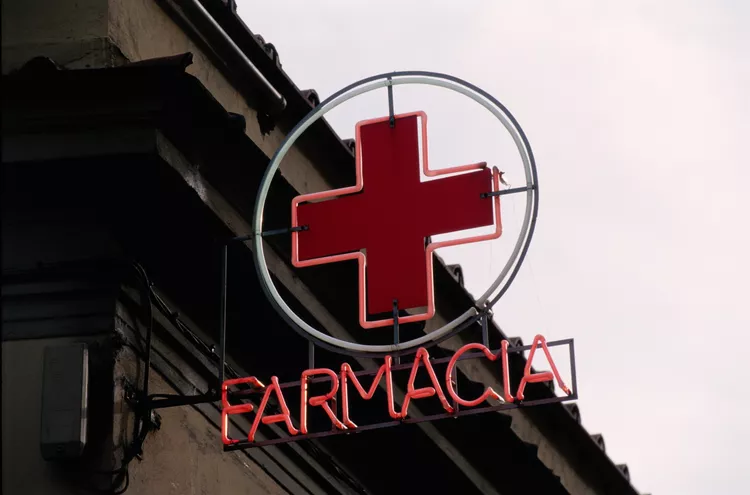Finding Pharmacies in Italy
In Italy, you can purchase many medications, both over-the-counter (OTC) and prescription, at the pharmacy or
farmacia. Typically, OTC drugs and vitamins are not accessible at supermarkets, although you can find basic first aid supplies at both locations. To locate a pharmacy, look for the cross sign, commonly illuminated in green. Your hotel front desk can guide you to the nearest farmhouse. If you are staying at an Airbnb or similar rental, it is advisable to inquire with your host upon check-in.
Many major cities feature one or more 24-hour pharmacies; however, these are less prevalent than in the U.S. Instead, pharmacies in specific areas follow the “”
farmacia di torno” concept, rotating hours during the night and on Sundays. Therefore, while you might need to travel a short distance to find an open pharmacy after hours or on Sundays, there usually is one within a few miles.
Traveling With Your Medications
If you are on prescription medications, it is crucial to carry them with you in their original containers in your carry-on luggage when flying to Italy. Do not place them in your checked luggage. Moreover, if you carry over three ounces of liquid medicine, ensure that you have the prescription or a doctor’s note handy.
Additionally, having a copy of your prescriptions or a list of the medicines you take (focusing on the actual drug names rather than generic ones) can be beneficial if you need to purchase them in Italy. If your medications are vital, sharing this list with a travel companion and someone at home who can assist you in replacing your prescription can be a practical safeguard.
If You Need Medication While Abroad
If you require medication while traveling in Italy, proceed directly to the farmacia (not to the
drogheria, which functions more like a grocery store). The pharmacist may assist in replacing your prescription drugs, even without the original prescription. However, certain medications, such as opiates and narcotics, are closely regulated and may be challenging to refill. Consequently, it is advisable to carry your original prescription, the medication container with your name, and, for controlled substances, a note from your doctor detailing your need for these medications.
While prescription drugs may be less expensive in Italy than in the United States, some over-the-counter medications may be priced higher, such as ibuprofen costing up to $1 per pill. Therefore, bringing your preferred brands of OTC medications can be a sensible approach. Generally, medications like aspirin are similarly priced to those in the United States.
More Than Just Meds
If you are feeling unwell, the pharmacist can provide advice as well. Most major Italian cities have English-speaking pharmacists. If you experience minor health issues and describe your symptoms, a pharmacist can often recommend an appropriate OTC product.
Typically, OTC medications are not prominently displayed, so you will likely need to request assistance from the pharmacist. While they may not have the exact medicine you are accustomed to, they can usually find an equivalent option to suit your needs.
In addition to medications, you can easily find other essentials in a pharmacy, including contact lens solutions, sunscreen, mosquito repellents, vitamins, toothpaste, mouthwash, feminine hygiene products, baby items, and occasionally, special dietary foods, such as gluten-free pasta.
When to Go to the ER for Medication
If you find yourself out of medication, lacking an original prescription, and unable to locate a pharmacist willing to refill your medication, visiting the
pronto soccorso (emergency room) is necessary. Here, an Italian doctor can write you a new prescription, provided you can verify the medications you require. Whether you visit the ER or a pharmacy, always remember to bring your passport or another form of photo ID.
Post Views: 1,648


